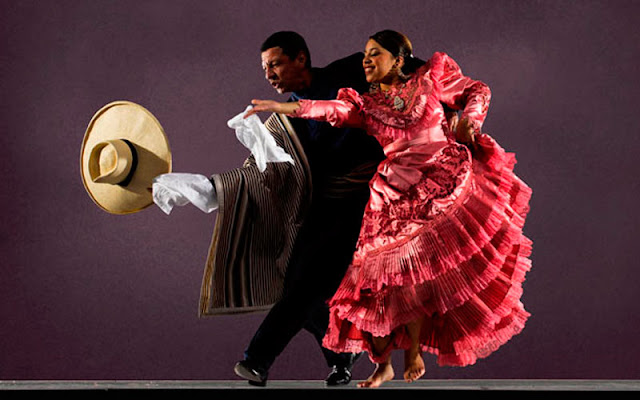WEEK 13TH: LISTENING, TALKING, AND WRITING ABOUT PAST EVENTS
WEEK 13: LISTENING, TALKING, AND WRITING ABOUT PAST EVENTS
|
PROPÓSITOS y EVIDENCIAS DE APRENDIZAJE |
||||
|
COMPETENCIA |
CAPACIDADES |
DESEMPEÑOS |
EVIDENCIA |
INSTRUM. EVALUACIÓN |
|
LEE
DIVERSOS TIPOS DE TEXTOS ESCRITOS EN INGLÉS COMO LENGUA EXTRANJERA ESCRIBE DIVERSOS TIPOS DE TEXTOS EN
INGLES COMO LENGUA EXTRANJERA UTILIZA LAS TICS |
Identifica los principales elementos del texto Infiere e interpreta información del texto
escrito. Adecúa el texto a la situación comunicativa. Demuestra autonomía en em manejo de entornos virtuales diversos |
Adecúa, organiza y desarrolla las ideas de forma
coherente y cohesionada. Identifica información explícita, relevante y
complementaria integrando datos que se encuentran en distintas partes del
texto Reflexiona y evalúa la forma, el contenido y el
contexto del texto escrito. Produce textos en inglés en torno a un tema con
coherencia y cohesión. Utiliza el WhatsApp y visita diversos entornos
web. |
Registro
de participaciones Vocabulario
desarrollado. Cuestionario de comprensión lectora Grammar
activities |
Lista
de cotejo |
PROPÓSITO DE LA SESIÓN:
· Promover, en
los estudiantes objetivo, la reflexión, interiorización y aceptación de la
importancia de participar activamente en la protección de su salud física y
mental mediante la práctica de hábitos y rutinas para una vida mejor, mediante
el conocimiento de festividades y actividades propias de nuestro país para
reforzar la identidad.
· Emplear una
lengua extranjera para expresarse acerca de rutinas y hábitos en nuestra vida
diaria, con asertividad los recursos lingüísticos, verbales y no verbales y las
estructuras básicas que permitan una comunicación asertiva y fluida empleando
expresiones del pasado.
Responderán el reto de expresarse acerca de eventos propios del
país empleando expresiones del PresentSimple and Simple Past y nuevas
expresiones de tiempo y vocabulario referido al tema propuesto.
ACTIVITY CLASS
I.
LISTEN, READ AND ANSWER:
The Spring Festival of Trujillo
The city of Trujillo is famous for its festivals: The Marinera Festival and the Spring Festival
The Spring Festival has taken place since 1950. The
first was celebrated when Manuel Odria
was the president of Peru.
In those days it was very difficult for groups of people to get together in the streets. This first festival was organized by a group of important people from Trujillo. They wanted to celebrate the beginning of spring with a festival with parades, contests, and beauty queens. And so, they did! They organized this festival, which was a success and although crowds got together, it was peaceful.
Nowadays,
the celebration lasts one week and about twenty beauty queens participate. They
come from Brazil, Ecuador, Chile, Colombia, etc. There are contests where the best “Caballo de Paso” and the best-decorated car are chosen.
The Spring The Festival of Trujillo is full of flowers, enthusiasm, and happiness.
I. Answer these questions about the reading.
1. When was the first Festival celebrated?
_____________________
2. who was the president of Peru at the time?
__________________
3. How long do celebrations last now?
________________________
4. How many beauty queens participate?
______________________
II. Vocabulary: (Desarrollar en tu cuaderno)
Peaceful:
Nowadays:
Choose/chosen:
Begin/
beginning/ began:
Want/
wanted
There is/are
GRAMMAR:
TIME EXPRESSIONS:
PRESENT TIME PAST TIME
Today yesterday
This week Last week / a week ago
This year/month Last year/ month
EXERCISES
I.
WRITE THE
CORRECT FORM OF BE IN SIMPLE PAST:
1.
You ______
not at the party.
2.
She ______
in the Spring festival.
3.
The boys
______ in the virtual conference.
4.
It_______
his birthday last week.
5.
Mum and
Dad __________ happy with the presents.
6.
The books
________ on the shelf.
7.
The
weather _________ really nice.
8.
I _______
at Trujillo, last month.
9.
We
___________ at Grandma’s in the summer holidays.
10.
They
_________ interesting people.
11.
Trujillo
City__________ founded by Spanish.
12.
Peru
__________ ruled by a Viceroy in 1800s.
13.
Marinera
festival _________ celebrated since 50s.
14.
My parents__________
in Huanchaco Beach two years ago.
15.
Many
visitors _________ invited to the first Marinera Festival in 1950.
II.
MAKE
QUESTIONS WITH SIMPLE PAST OF BE: (Was…? – Were….?)
1.
Jack/ at
home yesterday/?
2.
You / sick
las week/?
3.
Esteban
and Maria / married last month/?
4.
Bertha /
working at the hospital yesterday/?
5.
They/ in
the Marinera Festival in 2018/?
III.
MAKE
NEGATIVES WITH SIMPLE PAST OF BE: (wasn’t – weren’t)
1.
Trujillo
City ____________ founded by Portugal.
2.
Isabel the
Catholic ________ Peruvian.
3.
I ________
at home yesterday.
4.
Paul
_________ in the marinera Festival.
5.
Bertha and
James __________ in Lima last month.
IV.
WRITING:
Write a similar text about “Festival de la Vendimia” in Ica.
Use Simple Present and Simple Past of Be. (No usar traductor, apoyarse en textos en inglés
existentes, pero para escribir tu propia versión).
SELF TEST
|
Items |
I can do it easily |
I can do it |
I can't do it, but it's difficult |
I just can't do it. I need
help |
|
1.
Listening |
|
|
|
|
|
2.
Reading |
|
|
|
|
|
3.
Writing |
|
|
|
|
|
4. Grammar: S. Present – S. past |
|
|
|
|






Comentarios
Publicar un comentario